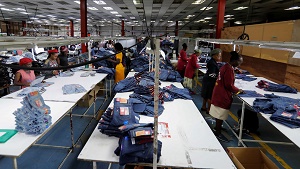Citing false claims that white South Africans are being persecuted, Trump has cut aid to the country, publicly berated its president in the Oval Office and invited Afrikaners - descendants of early European settlers - to come to the US as refugees.
But for white farmers who remain rooted in their homeland and aspire to keep making a living from the land, the tariffs due to come into effect on August 1 are an assault on those ambitions.
"It doesn't make sense to us to welcome South African farmers in America and then the rest that stays behind to punish them," said Krisjan Mouton, a sixth-generation farmer in Western Cape province's citrus heartland.
"It's going to have a huge impact," he said, standing among rows of trees heavy with navel oranges on his farm near the town of Citrusdal. "It's not profitable to export anymore to the US."
After a three-month pause, Trump escalated the global trade offensive he launched in April, announcing tariffs on more than a dozen countries on Monday, including South Africa.
Its citrus fruit, along with wine, soybeans, sugar cane and beef, had previously benefited from duty-free access to the US under the Africa Growth and Opportunities Act.
Helped by that trade initiative, SA, the world's second-largest citrus exporter after Spain, generates $100 million annually from the US market.
The new tariff ends that preferential treatment. And with three-quarters of SA's freehold land white-owned, white farmers will face the immediate economic fallout though they will not be the only casualties.
Boitshoko Ntshabele, chief executive of the Citrus Growers' Association of Southern Africa (CGA) said the levy will hurt all South African farmers and farm workers, no matter their race.
"A 30% tariff would wreak havoc on communities that have, for decades, focused on producing specifically for the US market," he said.
--Reuters--
Economy
- ${title}
Loading...
Economy
US tariffs on SA set to hit white farmers Trump has embraced

Date: Jul 9, 2025
United States (US) President Donald Trump's threatened 30% tariff on South African exports is set to deal an economic blow to a community he has vocally and controversially championed: white farmers.
Web Content Viewer (JSR 286)
- ${title}
Loading...
ADVERTISEMENT
Economy
- ${title}
Loading...
Web Content Viewer (JSR 286)
- ${title}
Loading...










